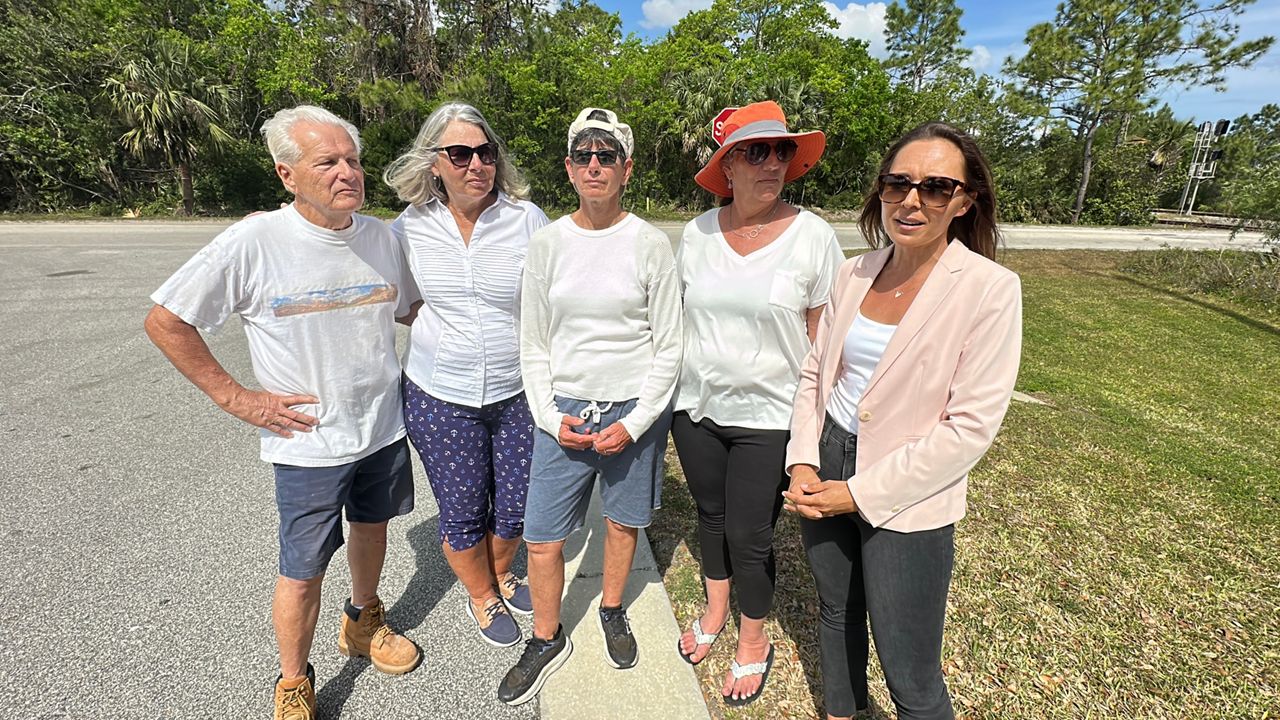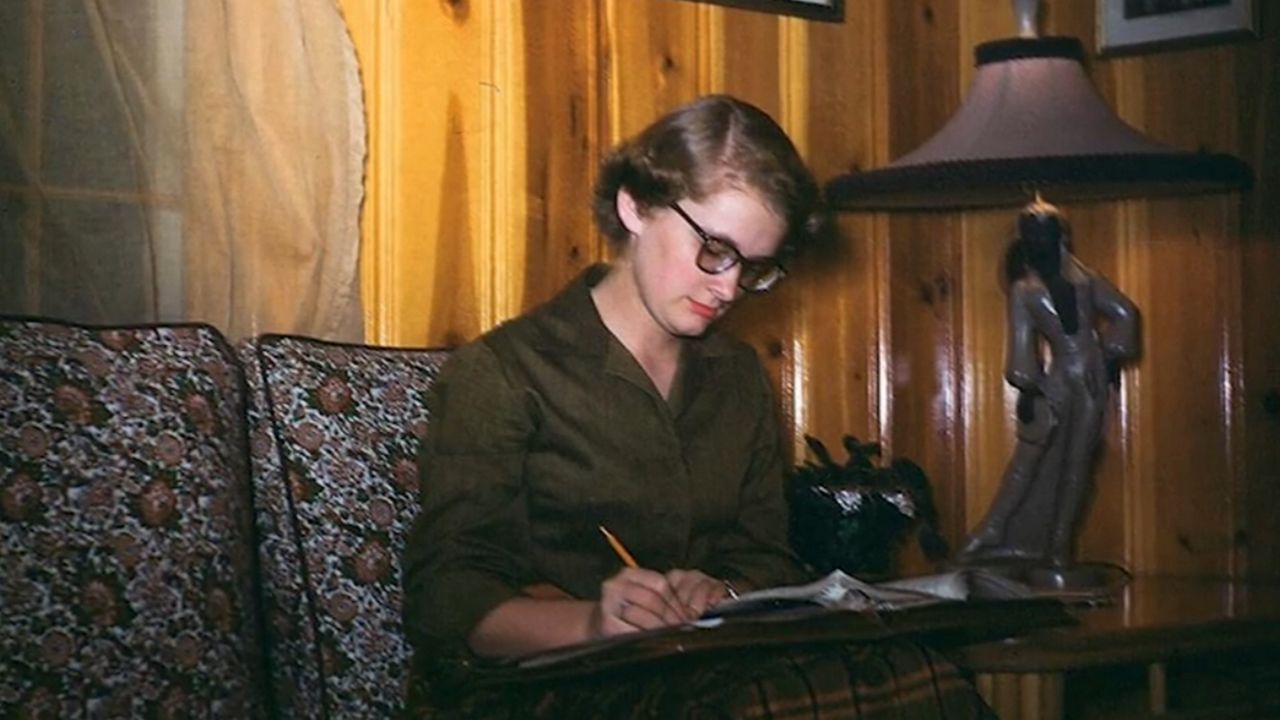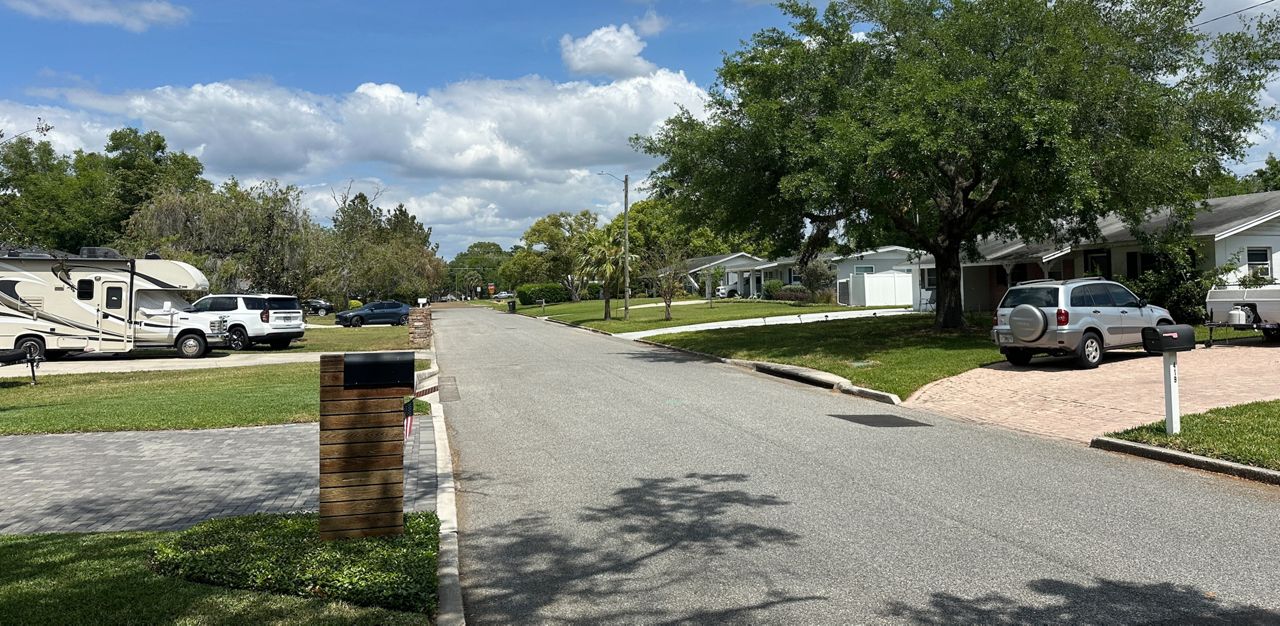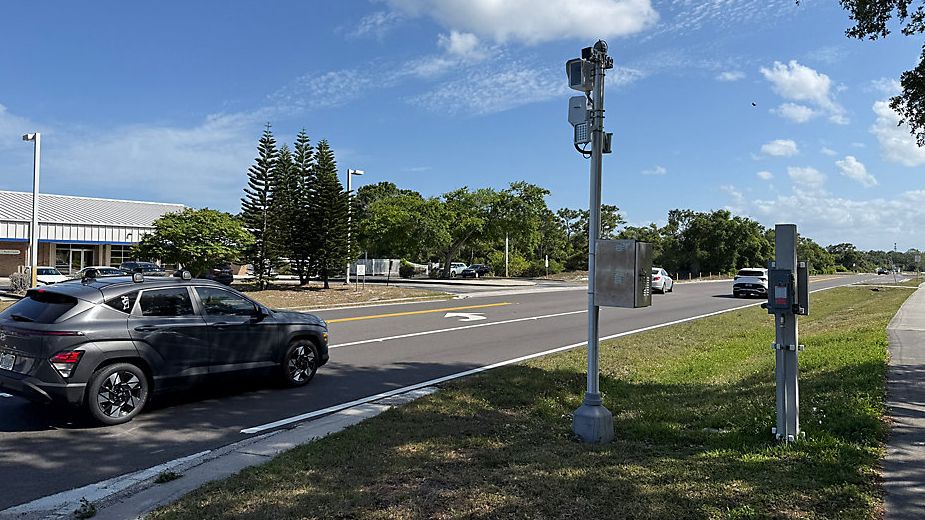OCALA, Fla. — Near the largest female correctional institution in the state of Florida, lies a farm tucked away in Ocala that is changing the lives of both inmates and horses.
The Thoroughbred Retirement Foundation’s Second Chances program at Lowell Correctional Institute pairs inmates with rescued race horses. Through the program, women get an opportunity to learn transferable skills, from grooming to feeding, while caring for retired race horses rescued by TRF.
And in tandem, inmates form strong emotional bonds with the animals, which gives them the opportunity to learn how to trust once again.
“He is my best friend. He’s the one I come to see every single day, the reason I wake up in the morning,” said Aria Westfall of her horse, Celestial City. “There are some dark days out there ... someone looking forward to see me.”
Westfall is serving six years at Lowell for two felonies related to drug trafficking. For the pediatric nurse raised in the Florida Panhandle town of Niceville, it was a major adjustment.
“I never experienced anything like it. The women are tough,” she said. “I’ve had to learn to be tougher on the outside. Don’t show my sensitivity.”
Westfall said that after transfers, she had only been at Lowell for two months when she was selected for the Second Chances program. The opportunity is seen as a privilege for low-level offenders to work at the adjacent farm. The land is owned by Lowell, but the farm, which houses more than 40 horses, is supported by TRF.
When Westfall was arrested, her daughter was 10 years old. The now teenager lives with her grandparents in Vermont and volunteers at a farm while her mother serves the remainder of her time behind bars.
“She lost both her parents that day,” Westfall said with tears in her eyes. “But I made peace with it in that if it didn’t happen, I wouldn’t be here. I wouldn’t find another aspect and passion in my life. I wouldn’t be there to help other women.
"I really feel like I was meant here to help people and continue what it is I love so much. And I found that in all these girls.”
For retired jockey Dean Purdom, who once raced from his own drug addiction demons, working at TRF’s Second Chances program at Lowell is an opportunity to shape the trajectories of women who many have discounted.
“When you’re here for a long time, your ability and availability to have relationships is pretty limited," he said. "A lot of them are away from their families. So, when they walk in a stall for the first time … it’s easy to make a connection with the horse."
Purdom retired from racing in 1996 and moved to Ocala. He now also owns his own farm, where he buys and sells horses.
“Knowing some of them when they got out and getting to see where they came from, I know the opportunities they need and it’s nice to provide that,” he said. “They go back to their families and start being moms again.”
It’s that notion of a willing teacher, caring environment and open door — a literal second chance — that Julianne Stowell seized upon when she concluded her sentence.
Like Westfall, the young woman from Cape Canaveral was sentenced for six years for several crimes, from drugs to eluding police. But, on the day she got out of Lowell, Stowell was hired by a stable 7 miles away.
In fact, in the last few years, Niall Brennan Stables and the ancillary family businesses have hired three women who “graduated” from the Second Chances program.
“Hard to believe that, that has brought me here," said Stowell, who handles client relations for the stable, taking photos and videos of the horses. "It’s hard to believe what I learned out there was so valuable out in the real world."
Just recently, Stowell and the other women created a 501c3 to help others like themselves get a leg up in the horse industry after incarceration. Their ultimate dream is to have a transitional house, job placement service and assist “graduates” of the program in finding housing or a car.
For Stowell, a new mom, it’s a path she never expected to be on — one she has called “surreal” — but is grateful, nevertheless.
“Take the opportunity and just run with it, because there’s endless opportunities if you just apply yourself and work hard,” she said. “It’s possible. There is hope. There is light at the end of the tunnel.”
It’s what Westfall, too, dreams of after she serves her time: a life after lock-up where she intends to re-locate permanently to Ocala so she can work with horses and maintain a connection with the program that changed her life.
She also desperately hopes to re-kindle a relationship with her daughter. Right now, they connect upon their mutual love of horses and experiences working on a farm.
“I hope she comes home. I don’t know at this point. I hope she decides she wants to come back here,” she said. “I wouldn’t change this experience. If I was meant to come to prison, I was meant to come for a reason bigger than me.”
The Thoroughbred Retirement Foundation cares for roughly 400 horses at various correctional institutions across the country. To learn more about the nonprofit, visit the Thoroughbred Retirement Foundation website.











